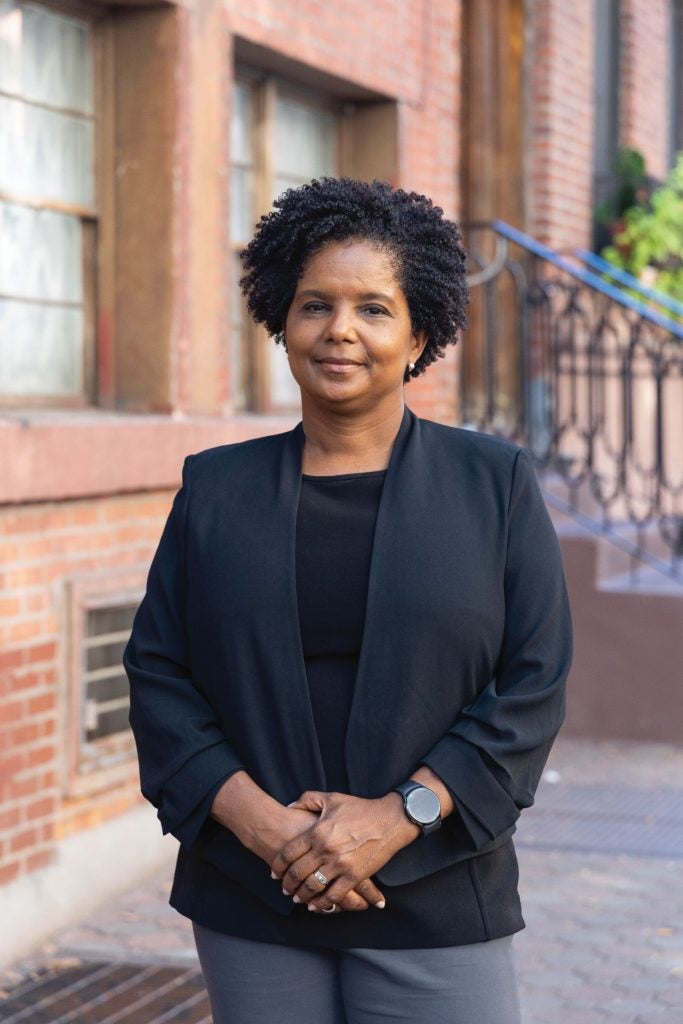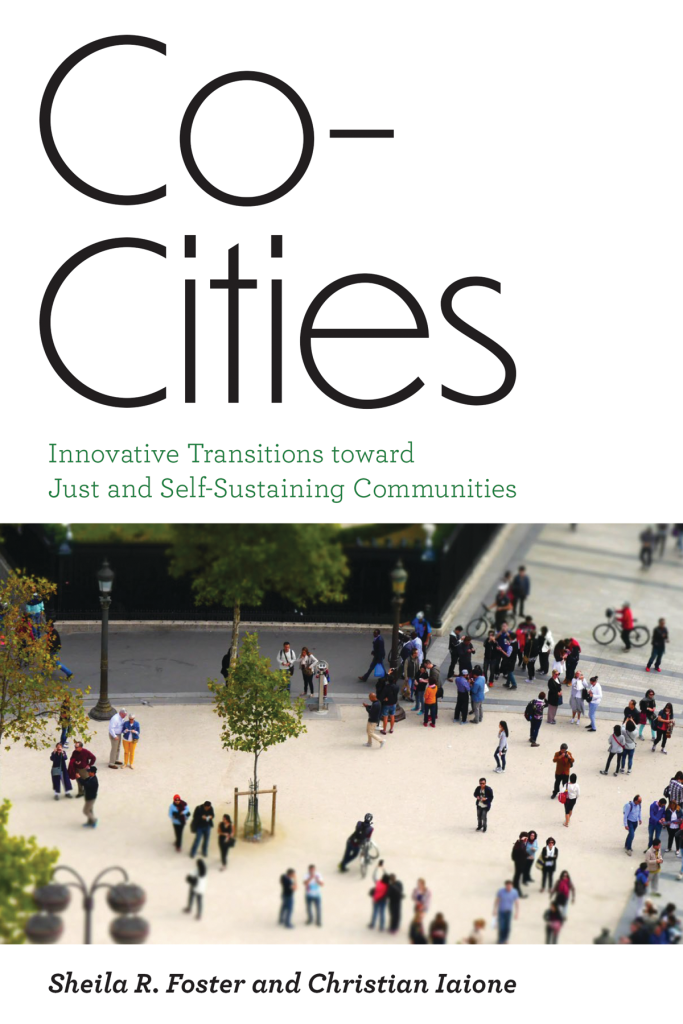Professor Sheila Foster’s New Book, ‘Co-Cities,’ Spotlights Empowerment Within Urban Communities
December 19, 2022

Our world is increasingly an urban one. The majority of people today live in metropolitan areas, and that proportion is only expected to grow in the coming years. At their best, cities are dynamic, diverse hubs of commerce and creativity. At their worst, they are crucibles of inequality and inefficiency.

Prof. Sheila Foster, co-author of the new book “Co-Cities”
Scott K. Ginsburg Professor of Urban Law and Policy Sheila Foster holds joint appointments at Georgetown Law and Georgetown’s McCourt School of Public Policy. She imagines cities where multiple stakeholders: governments, business owners, community organizations, universities and more are able to work together to build opportunities and promote sustainability. It’s a concept laid out in her new book, “Co-Cities: Innovative Transitions toward Just and Self-Sustaining Communities” (MIT Press), co-authored with Christian Iaione of Luiss University in Rome, Italy.
“The idea of a co-city is to collaborate, co-create, co-construct innovative forms of new goods and services,” explained Foster.
“We have a vision that is geared toward putting communities at the center and not being top-down. It’s a vision, but it’s also a reality. And we would like to expand that vision to more cities.”
URBAN EXPERIMENTS
The book lays out work Foster, Iaione and others have been leading in recent years through LabGov (Laboratory for the Governance of the City as a Commons), a network of projects experimenting with this collaborative approach to urban management. LabGov Georgetown, based at the McCourt School, is engaged in a few places, including with an initiative in Baton Rouge, Louisiana.
“We’ve been working with the redevelopment authority, a city agency, and bringing in different community groups, the private sector and universities to create new multi-stakeholder institutions. For example, we designed a community land bank and land trust to redevelop vacancies in a way that the community wants, with affordable housing and an eco-park that will be co-governed by the people who live there,” said Foster of the Baton Rouge project.
There are other LabGov projects around the world, including in Italy, Hong Kong, Costa Rica and Harlem, New York. And Foster hopes that “Co-Cities” will not only inspire many more, but will also serve as a toolkit to help launch and scale up new ideas. The publisher, MIT Press, has made an open-source version of the book available free of charge, and it and other related resources are available on the website commoning.city.
 SUSTAINABLE COMMUNITIES
SUSTAINABLE COMMUNITIES
Foster can trace her interest in urban governance back to her early days in academia. She was a lecturer at her alma mater, Berkeley Law, when a law journal invited her to review a new book, “Race And The Incidence Of Environmental Hazards” by Bunyan Bryant.
“I’d never thought about environmental law or natural resources law as having anything to do with civil rights. And that just kind of set me off on that path,” she recalled. “No one knew what ‘environmental justice’ meant when I first started. Today, I don’t have to explain it.”
Over the next several years, her scholarship and legal work centered around how environmental regulation can protect marginalized communities. But progress was frustratingly slow.
“During a research trip in Latin America, it occurred to me that I needed to think about a larger context of how we create sustainable communities. And that led me to this policy path that is both about understanding how our laws help us create our lived environment, but also how we can create new policies to do that in innovative ways,” she said.
JUSTICE AND INCLUSION
Last year, Foster brought this approach to one of her own communities, as she served as Georgetown Law’s inaugural Associate Dean for Diversity, Equity, and Inclusion (DEI). One of the legacies of her tenure is the establishment of the Inclusion Council, an advisory body that brings together faculty, staff, current students and alumni to ensure that multiple perspectives have input into decision making related to DEI and the Law Center. For her efforts, she was presented with the Law Center’s 2022 Steven Goldberg Faculty Service Award.
“Georgetown is probably the most diverse law school in the country, outside of historically Black schools like Howard. And the challenge when you have a really diverse environment is a lot more friction,” said Foster.
“A city is like Georgetown,” she continued. “People come for extraordinary opportunity, they’re attracted by the mix of cultures. But there are challenges that come with that mix. So we can’t run cities like we’ve always run them, and we can’t run a law school like we’ve always run it. We have to bring different voices to the table, and create mechanisms that keep them involved.
“We need institutional change, keeping in mind where we’ve come from and having a vision for who we want to be. For me, it’s justice at the core of the co-city model. An inclusive idea of justice.”